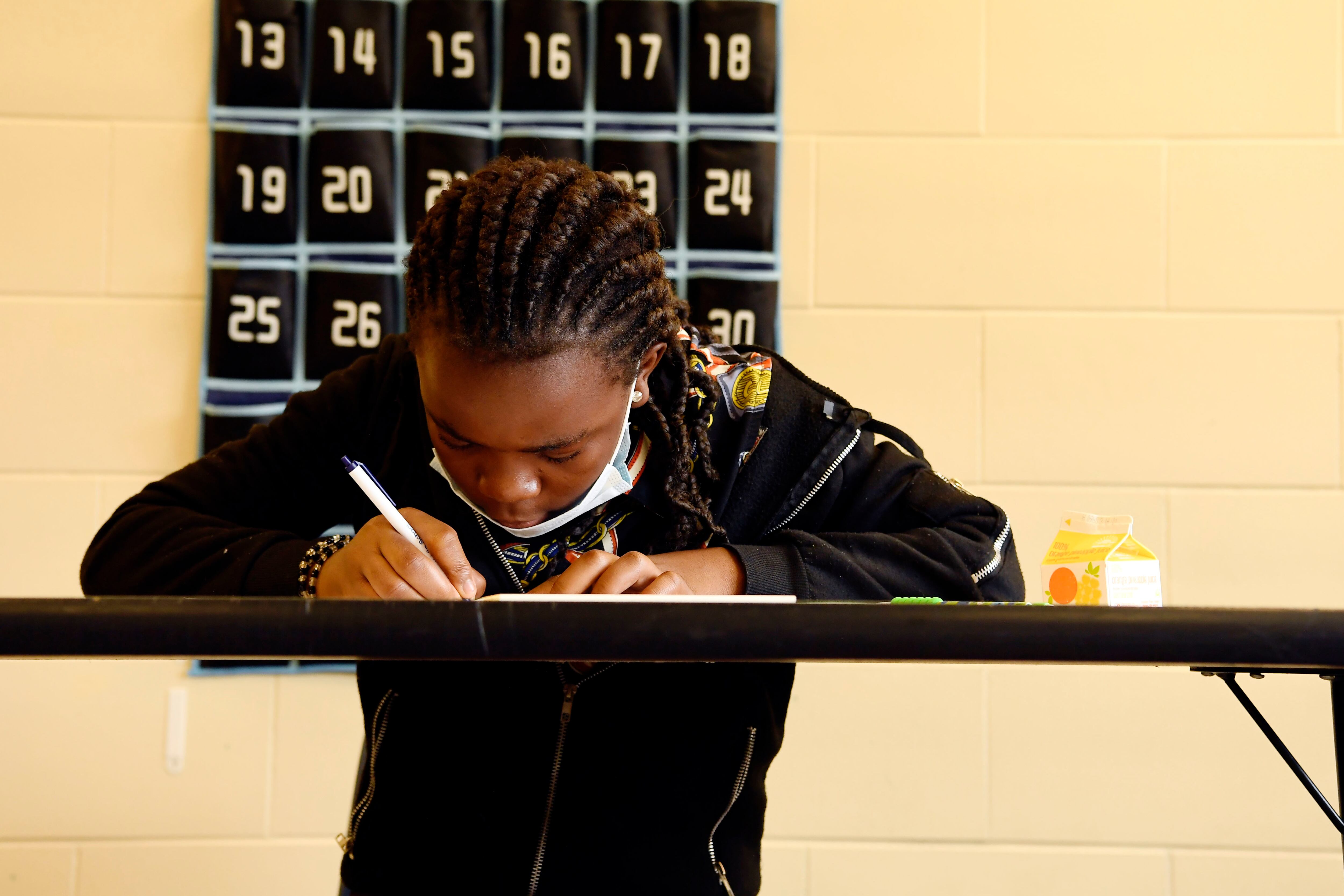Colorado voters gave strong approval to a constitutional change that preserves local school funding and spares the state budget a massive new obligation.
With more than 2.7 million votes counted, Amendment B received more than 57% of the vote. In approving Amendment B and repealing the Gallagher Amendment, voters headed off a fiscal crisis for schools but removed protections from homeowners.
“Having the Gallagher repeal pass takes a lot of pressure off the state for school finance and for backfilling [local district budgets],” said Tracie Rainey, director of the Colorado School Finance Project. Property tax revenue won’t decline dramatically. “That helps next year, and it helps into the future.”
At the same time, voters approved an income tax cut that will result in reduced state revenue and appeared likely to make it harder for lawmakers to establish new fees. Education advocates say the passage of Propositions 116 and 117 will make an already tight budget situation more challenging.
Voters approved Proposition 116 by a similar margin as the Gallagher repeal, while Proposition 117 had a narrower but steady lead.
“We still have a lot of work to do as Coloradans to get to that structural fix where we can say through our budget that we value and support public education,” said Amie Baca-Oehlert, president of the Colorado Education Association, the state’s largest teachers union.
Michael Fields, executive director of the conservative group Colorado Rising State Action, which opposed Amendment B and backed Propositions 116 and 117, said the split votes create an “offset,” with school districts avoiding a hit even as state government will be more constrained. He downplayed concerns that schools funding would be affected.
“I’m not worried the governor and the legislature won’t prioritize education,” he said.
The Gallagher Amendment was a 1982 state constitutional provision that determined what share of property taxes were paid by residential and commercial property owners, respectively.
Over time, this ratio, which is based on statewide averages, has driven down property tax collections for rural school districts, fire districts, hospital districts and other taxing entities. Commercial property owners now pay taxes on a much larger percentage of their property value than do homeowners, and the state has had to cover a larger share of school funding. These were the problems that a bipartisan group of lawmakers wanted to address by placing Amendment B on the ballot.
Colorado’s school finance system requires the state to make up whatever money is not covered by local taxes. Every year, growing education costs crowd out other needs in the state budget, from transportation to human services to higher education. And even then, lawmakers can’t meet their constitutional obligations for school funding, instead holding back money every year.
This problem would have gotten dramatically worse if Amendment B had failed.
Last year, lawmakers slashed spending in response to expected revenue shortfalls due to the pandemic. Gov. Jared Polis on Monday introduced a proposed budget for 2021-22 that would restore many of those cuts. He believes the state can afford to do so because the economic downturn has been less severe than anticipated.
The passage of Proposition 116 means lawmakers have less money to work with as they create the 2021-22 budget. Proposition 117 requires voters to approve major new fee increases, just as they have to approve all tax increases. That would make it harder for lawmakers to turn to new fees to make up lost revenue.
Polis, a Democrat, supported the tax cut, as well as the Gallagher repeal. In an emailed statement Wednesday, he praised Colorado voters.
“Colorado solidified itself as one of the best places in the country to live, work, and play, or to start and run a business,” he said. “Coloradans overwhelmingly supported a measure to provide free preschool to every 4-year-old in our state. We voted in support of our firefighters, small businesses, and local communities. Voters provided tax relief for every Coloradan and paved the way for broader fiscal and tax reform.”
Carol Hedges, director of the left-leaning advocacy group the Colorado Fiscal Institute, expressed relief that voters had repealed the Gallagher Amendment, but said the Colorado tax code had become more regressive, with the passage of Proposition EE, a tax on nicotine products to support preschool, alongside an income tax cut that will benefit well-off Coloradans more.
“Despite this setback, we are hopeful about one thing: This result should give Gov. Polis the tax cut he’s been pushing for since he took office,” she said in an emailed statement. “We hope this result allows the governor to move on from income tax cuts and focus on ways to work with the legislature to make our tax code fair.”
With the passage of Amendment B, residential property assessments will stay roughly where they are today, and school districts get to keep $490 million in local property tax revenue they had been counting on. Homeowners, though, lose some protections against future property tax increases.
Lawmakers, rural fire chiefs, business interest groups, and others have been working on a Gallagher reform or repeal for years, but the issue reached a crisis point due to the economic downturn associated with the coronavirus pandemic. If nothing had changed, falling commercial property values would have forced down the assessment rate applied to residential property in order to maintain the ratio required by Gallagher.
Supporters pitched Amendment B as a way to support firefighters, health care workers, and teachers during a time of unprecedented crisis. Opponents said the repeal is a tax increase in disguise.
Baca-Oehlert attributed the passage of Amendment B to the broad coalition that supported it. Recent years have seen the failure of several tax measures aimed at increasing school funding.
“We’ve not solved our problems,” she said. “I have hope that this is a door opening to a future where we could work together on solutions.”






